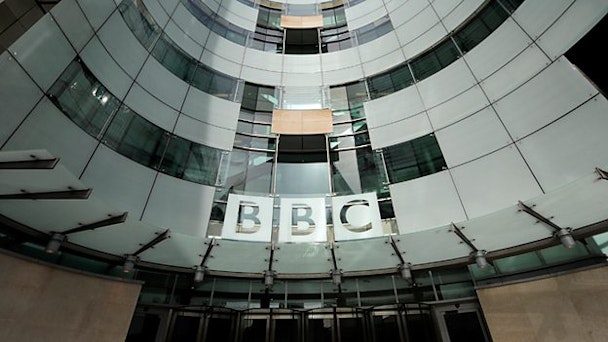Gov report claims the BBC deprives competitors of up to £86m in revenue and pressures closure of iPlayer loophole
The BBC is depriving competitors of up to £86 million a year by running entertainment stories and other content that takes the share away from commercial rivals, according to a government study, saying that figure will rise£115m a year by the end of the next Charter period.

The report, published today (2 February) on behalf of the Department for Culture, Media and Sport, found that a lack of distinctiveness in the BBC’s mainstream services is likely to have some impact on the revenues of rival mainstream services.
The findings were forwarded by culture secretary John Whittingdale today at the Oxford Media Convention, who asked whether popular BBC1 programmes such as Strictly Come Dancing were “distinctive” enough.
Whittingdale showed an interest in supporting commercial rivals, saying he is looking at the future of Channel 4 with a view to ensuring that its remit continues.
Allowing a higher share of TV space to commercial rivals via a more differentiated BBC strategy will open up a total of £81m to £115m extra commercial ad funded rival revenue per year across TV, radio and online by the end of the next Charter period.
ITV is hit hardest by BBC One’s commissioning of similar content, and may be reducing ITV1’s income by more than £33m to £40m a year by reducing its share of TV broadcasting.
Responding to Whittingdale’s speech, the shadow secretary of state for culture, media and sport, Maria Eagle, said: “The secretary of state seems more concerned about helping the BBC’s commercial rivals than in helping the corporation satisfy its audiences and meet its public service obligations.”
Whittingdale is also putting pressure on the government speed up legislation to close the “iPlayer loophole”, which as of July 2015 cost the BBC £150m a year in a loss of licence fee income, leading to cutting of more than 1,000 jobs.
The loophole allows viewers to watch BBC shows on catchup services without having a TV licence. He said the BBC works on the basis that all who watch it pay for it, and wants to stop giving viewers a “free ride”, saying this was never the intention of the service.
Whittingdale also launched a new initiative to counter the impact of ad blockers on the newspaper industry, arguing that many news titles are struggling with the backlash of the rise of ad blocking, which now has 22 per cent of Britons using the software, contributing to falling revenues from advertising and online content.
A BBC spokesperson responded to suggestions from the report to open up more TV share, saying: "We welcome the report's recognition of the BBC's important role in the creative economy and that our strategy to create an open BBC with more partnerships, can enhance that.
"We agree with improving distinctiveness, but not with shrinking the BBC. The BBC’s services are distinctive and have become more distinctive in this Charter period. The response to the Government's Green Paper shows that licence fee payers overwhelmingly agree.
"The BBC’s services must continue to be run in the interests of audiences, not for the benefit of competitors. We are concerned that some of the report’s proposals would risk undermining the universal appeal, reach and quality of the BBC’s main services, BBC1, BBC2, Radio 1, Radio 2 and BBC Online.’’

